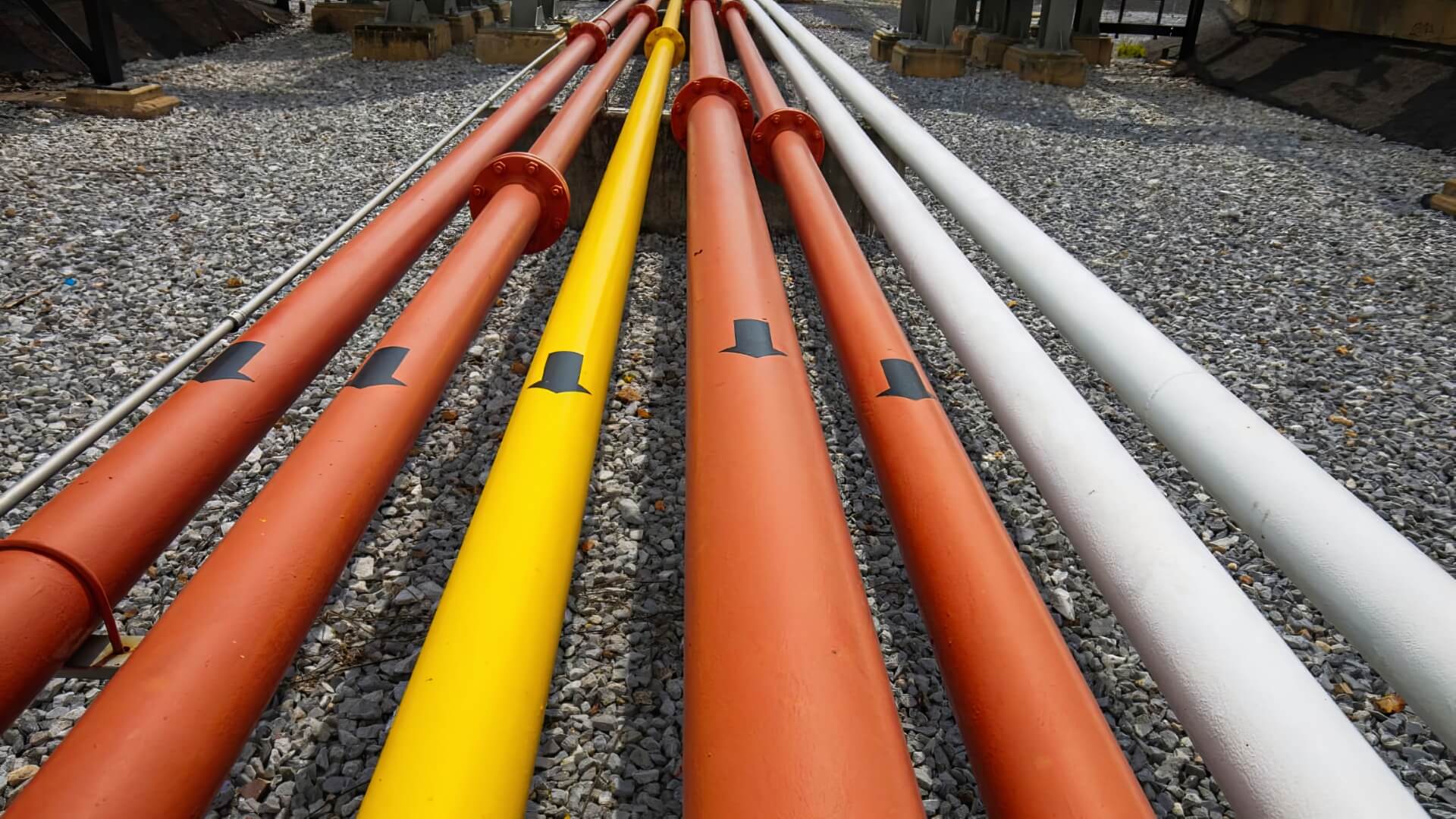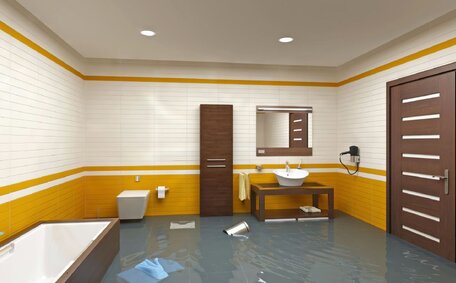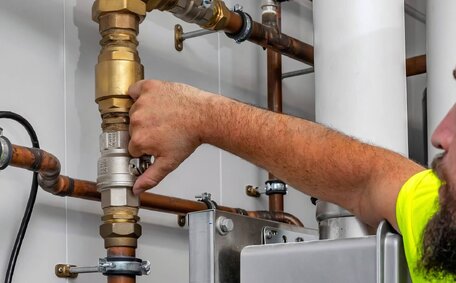How Do Solar Hot Water Systems Work?
Learn how solar water heaters use roof-mounted solar panels to efficiently capture the sun’s heat. The heat absorbed by solar panels is used to warm the water in the collector. There are two main types of solar collector designs to consider:
- Flat plate collectors: These consist of insulated, weatherproof boxes with a dark absorber plate beneath glass covers. The sun warms the absorber plate, which subsequently transfers heat to the water collectors and the surrounding heat circulating through the small tubes in the collector.
- Evacuated tube collectors: These systems use sophisticated designs for solar water heating, with parallel rows of transparent glass tubes and a vacuumed space enhancing heat collection.
Both collector types are designed to maximise sunlight capture and minimise heat loss, outperforming conventional methods. The heated water from the collectors, with the aid of efficient heat pumps when necessary, subsequently flows into an insulated water storage tank. This pre-heated water feeds into your electric water tank for your hot water system or a regular system, aiding in how you can save money by lowering overall energy use.
Because solar power harnessed from your roof provides the energy for your hot water use at no ongoing fuel cost, it demonstrates how solar hot water contributes to a cost-effective system while also lowering your carbon footprint. Understanding the pros and cons, and with proper maintenance, these systems can offer decades of reliable hot water, enhance energy efficiency, and lower greenhouse gas emissions, often offering a swift return on investment.
Understanding Flat Plate and Evacuated Tube Collector Types
The two primary solar collectors in solar hot water systems are flat plates and evacuated tubes; let’s explore their pros and cons to determine the best system for your home:
Flat Plate Collectors
- Made of an insulated, weatherproof box with a dark absorber plate under one or more glass covers
- The sun warms the absorber plate, heating the water in the collector’s tubes.
- Lower cost option typically used in household systems
- Best suited for warmer climates as they can lose heat in very cold conditions
Evacuated Tube Collectors
- Contain parallel rows of long, transparent glass tubes, each featuring a heat pipe technology with a vacuum space next to the absorber plate
- The vacuum provides excellent insulation, making them more efficient in cold weather
- Highly Provides efficient hot water, often outperforming flat plates, but comes at a higher cost.
- Well-suited to environments with very cold winters
With its temperate climate, those in the Moorebank area looking to install solar systems can consider both flat plate and evacuated tube collectors, with potential for both financial savings and environmental benefits. Flat plates often serve as the most economical choice for typical residential hot water needs. For larger systems or extremely cold overnight temperatures, evacuated tubes can also be considered for their extra efficiency.
Choosing the right solar water heater system, whether flat plate or evacuated tube collectors, depends on household hot water demand, available roof space, and budget constraints. Consulting with a professional skilled in installing solar water heaters technology can help decide accurately assess your unique situation.
Calculating Potential Energy Bill Savings
Choosing solar hot water systems can significantly reduce your electricity and gas bills, providing increased household value through cost savings. On average, a household can trim about $280 from its annual hot water heating bills by switching to a solar hot water system.
Actual savings differ based on factors such as heating efficiency:
- How efficient solar hot water can make household usage
- Local climate conditions
- Electricity and gas prices in your area
Under optimal conditions, solar hot water systems can satisfy 60-80% of a household’s hot water requirements. Using the free energy from the sun instead of electricity or gas can cut your water heating bills by up to half or more.
You could save over $5,600 in a 20-year period by using solar hot water instead of traditional heating methods. As reliance on solar systems is expected to increase, the long-term cost savings could be even greater.
A correctly sized, high-quality solar hot water system is key to maximizing savings for your household. Our team at your email address would be delighted to assess how a hot water system solar energy can heat your home and water usage, providing a detailed estimate so you can envisage your potential savings over time.
Comparing Installation and Operating Costs to Traditional Water Heaters
The upfront cost of purchasing and installing a solar hot water system can range from $4,000 to $10,000 depending on the type, size and components. This is a bit steeper than traditional gas hot water system units, which usually cost about $500 to $1,500.
On the other hand, solar hot water heaters utilise the sun’s energy, ensuring the water which your household utilises is heated with extremely low operating costs. Once installed, they rely on free renewable energy, reducing fossil fuel dependence by using solar power for heating. Minimal maintenance is needed, unlike gas electric alternatives, once every 3-5 years for around $150-$300 to keep the system running efficiently.
Over a lifespan of 20+ years, when considering the annual savings from gas hot energy costs of $280 per year, A hot water system solar-powered is a better value despite the higher initial outlay. The system often pays for itself within 7-10 years - after that it provides free hot water.
So while solar hot water systems have higher upfront costs than conventional units, their impressive energy savings and long operating life make them worthwhile long-term investments for households with high hot water needs.
Leveraging Available Rebates and Incentives
Investing in a solar hot water system can enhance your home’s value, and available rebates and incentives can improve affordability.
The federal government offers rebates through the Small-scale Renewable Energy Scheme (SRES). This incentive offers a discount on the purchase price of solar hot water systems according to the amount of renewable energy source production expected from the system. The exact rebate value depends on your location, but is typically around $500-$1,000.
Some state governments also offer additional rebates, grants or interest-free loans for installing renewable energy systems. For instance, the Empowering Homes programme in NSW offers discounts on solar hot water as well as discounts for solar PV system installations and batteries.
Contact Moorebank Plumbing to learn about current solar hot water rebates. With the right incentives, you can recoup even more value and realise savings sooner from your heating water system.
Considering Your Climate’s Impact on Efficiency
The climate in Moorebank and the greater Sydney area is well-suited for getting solar hot water systems. In New South Wales’ temperate zone, Sydney receives ample sunlight to power solar panel water heating systems during the day, boasting over 100 sunny days per year on average.
Temperatures are also ideal, ranging from about 8°C to 26°C throughout the year. Cold overnight temperatures are moderate, rarely dropping below freezing. This climate enables both flat plate and evacuated tube collectors to provide efficient hot water.
Sunny and temperate conditions provide an ideal setting for solar hot systems to efficiently use free solar energy for heating water. Systems sized and installed properly for local conditions can provide a household with 60-80% of its hot water from renewable solar energy.
Get in touch with Moorebank Plumbing to see how solar hot water systems can offer optimal efficiency for your home in this climate.
Understanding Maintenance Requirements and System Lifespan
Solar hot water systems need minimal maintenance over their extensive operating life. With quality components and proper installation, solar hot water systems can last 20-25 years or more before requiring major repairs, enhancing your home’s value.
Basic maintenance, including simple visual checks on your pipes, is recommended every 3-5 years to keep the system performing efficiently. This involves:
- Inspecting the solar collectors for damage, debris buildup or leaks
- Checking and replacing the heat transfer fluid if needed
- Inspecting pipes and connections for leaks
- Cleaning the storage tank
- Testing the pump and controllers
Routine solar system maintenance usually runs between $150-$300, less than that for electric heaters. Replacing any worn parts proactively can extend the system’s lifespan. Occasional part replacements, such as electric pumps or controllers, may be necessary.
Regular upkeep ensures a quality solar hot water system provides over 20 years of virtually free hot water. This is almost double the lifespan of traditional electric and gas water heaters use.
Moorebank Plumbing technicians can ensure your solar hot water system operates optimally with regular maintenance. Contact us anytime to learn more or schedule service.
Evaluating the Impact on Property Value
Installing a solar hot water system can potentially increase your home’s resale value. Studies show that on average, homes with these systems sell for around 3.4% more than comparable properties without them.
This higher valuation appeals to eco-friendly buyers, promising long-term savings on energy costs. Solar hot water also adds a modern update that buyers may favour over an older traditional heating system.
In the Moorebank area specifically, highlighting your solar hot water system would attract buyers looking to take advantage of abundant local sunlight and temperate weather conditions that allow the system to operate at peak efficiency.
However, the increased property value should be weighed against the system cost. But taken together, a solar hot water system can be a smart investment that pays dividends when selling your home down the road, while finding ways to save money on hot water now.
Is the Investment Worthwhile Despite Upfront Costs?
Despite higher initial costs, the long-term savings and benefits make solar hot water systems a valuable investment.
Over a lifespan of 20+ years, considering gas hot water energy bill savings of around $280 per year, a solar hot water system often pays for itself within 7-10 years. After that, it provides free renewable hot water.
There are also rebates and incentives available worth over $500 to help make the initial purchase more affordable. And installing a system can increase a home’s value by around 3.4% on average.
With these savings, environmental advantages, low carbon output, and minimal upkeep, solar hot water systems make financial and ecological sense for sunlit homes.
We encourage you to get in touch with our specialists at Moorebank Plumbing to delve into the heater system your specific situation requires. We can offer an extensive briefing to inform you more about cost considerations, potential savings, available rebates, and appropriate system sizing for your home.






